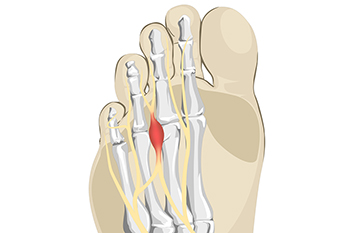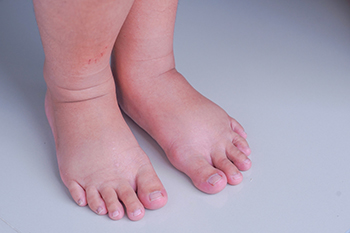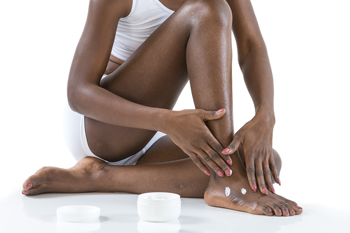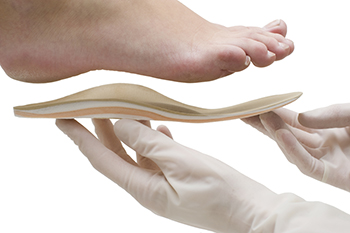
Research has indicated that the foot condition known as Morton’s neuroma is generally simple to diagnose. The common symptoms that many people experience with this ailment can include a tingling sensation between the second and third toes, or the fourth and fifth toes. It may begin after wearing specific types of shoes, or from walking or standing for an extended period of time. Many people can develop this condition from wearing high heels. This can be a result of a lack of adequate space for the toes to move freely in. A clicking feeling and sound may be felt in the ball of the foot, and it can feel uncomfortable. Many people often equate this feeling with the sensation of stepping on a marble, or having an out of place seam from a sock. Additionally, the toes can separate with a large Morton’s neuroma, and medical attention is needed. The toes may become numb, and it can be quite painful to walk. If you have any of these symptoms, it is advised that you place yourself under the care of a podiatrist who can use various conservative methods, or possibly even perform surgery, to treat Morton’s neuroma.
Morton’s neuroma is a very uncomfortable condition to live with. If you think you have Morton’s neuroma, contact one of our podiatrists of Footcare Now. Our doctors will attend to all of your foot care needs and answer any of your related questions.
Morton’s Neuroma
Morton's neuroma is a painful foot condition that commonly affects the areas between the second and third or third and fourth toe, although other areas of the foot are also susceptible. Morton’s neuroma is caused by an inflamed nerve in the foot that is being squeezed and aggravated by surrounding bones.
What Increases the Chances of Having Morton’s Neuroma?
- Ill-fitting high heels or shoes that add pressure to the toe or foot
- Jogging, running or any sport that involves constant impact to the foot
- Flat feet, bunions, and any other foot deformities
Morton’s neuroma is a very treatable condition. Orthotics and shoe inserts can often be used to alleviate the pain on the forefront of the feet. In more severe cases, corticosteroids can also be prescribed. In order to figure out the best treatment for your neuroma, it’s recommended to seek the care of a podiatrist who can diagnose your condition and provide different treatment options.
If you have any questions, please feel free to contact our offices located in Elmhurst Jackson Heights, Astoria, NY, and Rego Park, NY . We offer the newest diagnostic and treatment technologies for all your foot care needs.




